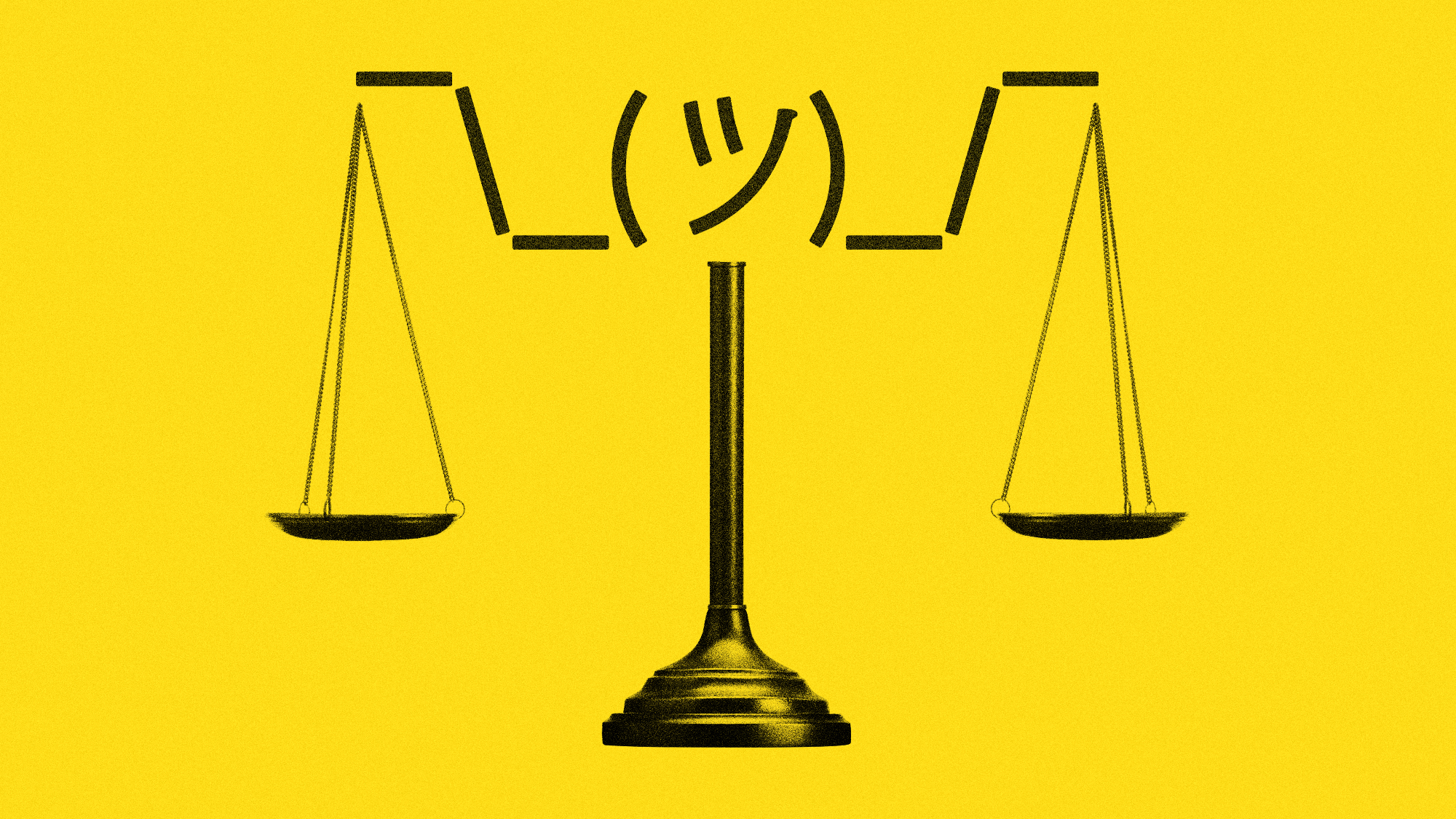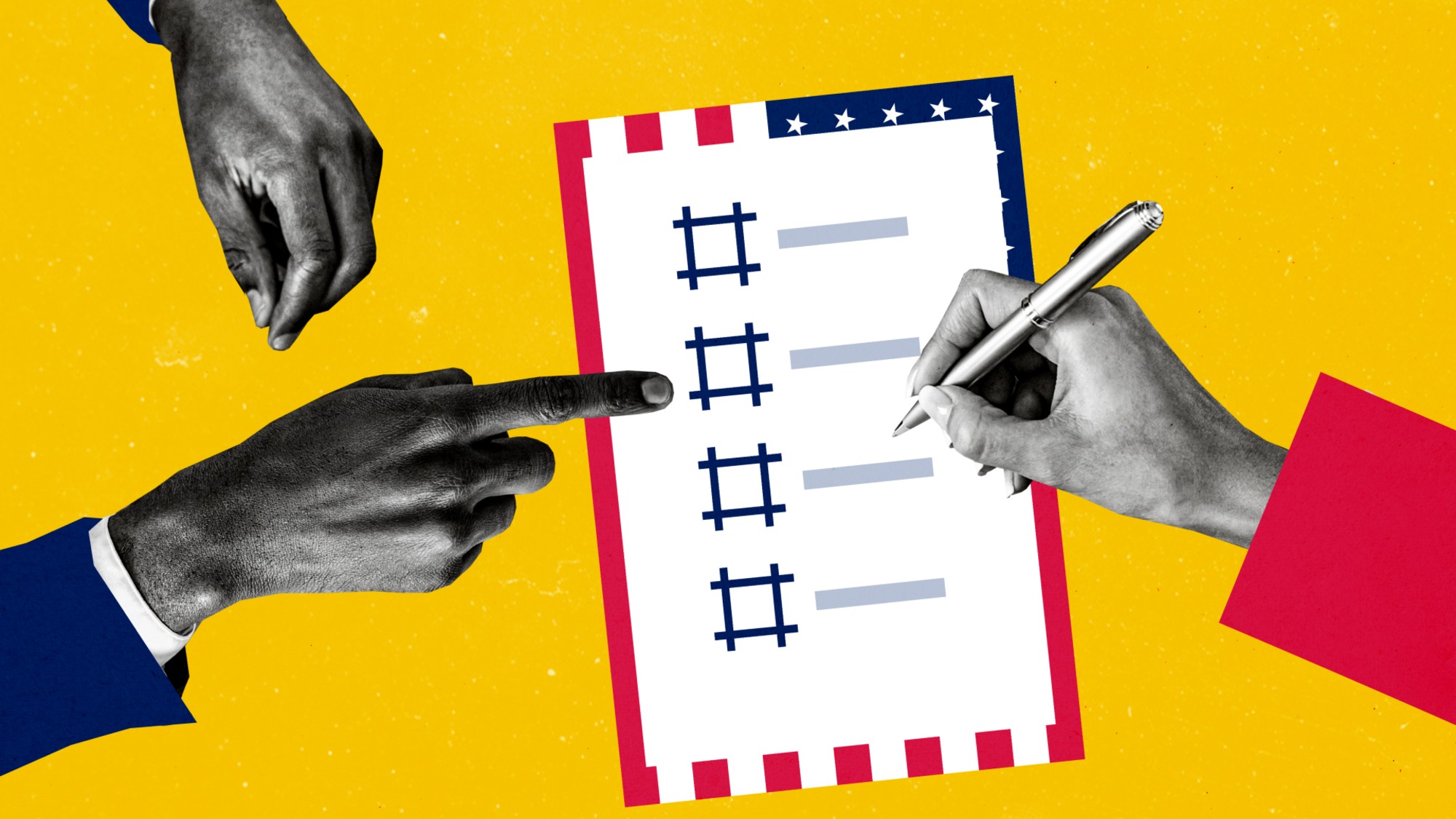Why are federal judges criticizing SCOTUS?
Supreme Court issues Trump case rulings 'with little explanation'


A free daily email with the biggest news stories of the day – and the best features from TheWeek.com
You are now subscribed
Your newsletter sign-up was successful
The work of judging was once simple. The Supreme Court would set rulings, and lower-court judges would follow its precedents. That pattern has been upended in the Trump administration, sparking a conflict between federal judges and the high court.
Lower-court judges are "frustrated" with the Supreme Court and its handling of cases involving President Donald Trump, said NBC News. They say a pattern has emerged: Courts take on cases against Trump. Judges "painstakingly research the law" and often rule against the administration, which appeals to the high court, which in turn makes emergency "shadow docket" rulings with "little to no explanation." Lower-court judges say that vagueness leaves them in the dark about how they are supposed to apply the law. The Supreme Court is supposed to give "well-reasoned, bright-line guidance" to lower courts, an anonymous judge said to NBC, but now rulings often come with "breathtaking speed" and "minimal explanation."
Some judges compare the Supreme Court's approach to Trump cases to Calvinball, the "fictional game without rules," said Axios. They echo Supreme Court Justice Ketanji Brown Jackson, who last month suggested her colleagues follow precisely one rule in their jurisprudence: "This administration always wins."
The Week
Escape your echo chamber. Get the facts behind the news, plus analysis from multiple perspectives.

Sign up for The Week's Free Newsletters
From our morning news briefing to a weekly Good News Newsletter, get the best of The Week delivered directly to your inbox.
From our morning news briefing to a weekly Good News Newsletter, get the best of The Week delivered directly to your inbox.
What did the commentators say?
The Supreme Court has been using a "shadow docket" to make its rulings "increasingly often," said Mark Guzelian at Harvard Political Review. Those decisions come "without oral arguments or a formal signed opinion with legal reasoning," as opposed to "merit docket" decisions in which the court is transparent about its reasoning so that lower-court judges can apply the law. That presents "dangers to the future of the law" in the U.S. and "could have the unintended effect of decreasing confidence in an already unpopular Supreme Court."
Lower courts are "never free to defy" the Supreme Court's rulings, said Justice Neil Gorsuch in a recent case. But high court justices are handing down "thinly (or entirely un-)explained rulings" and expecting lower-court judges to "read their minds," said Steve Vladeck at One First. The court "doesn't have to provide full-throated explanations" of its rulings. But it leaves lower courts vulnerable at a time Trump and his allies direct "heated rhetoric" at any judge who makes a ruling "even slightly adverse to the federal government."
What next?
Supreme Court Justice Brett Kavanaugh last week acknowledged that the high court's reasoning "isn't always so clear," said Politico. The process of reaching consensus on the nine-member court "can lead to a lack of clarity in the law and can lead to some confusion, at times," Kavanaugh said at a judicial conference. "We are always trying to do better."
One problem is that shadow docket rulings "become binding precedent," Erwin Chemerinsky, the dean of the University of California, Berkeley, School of Law, said at ABA Journal. There will always be a need for the court to issue emergency rulings. But those cases should not serve as a guide to the lower courts. Shadow docket cases "should be fully heard before becoming binding precedent."
A free daily email with the biggest news stories of the day – and the best features from TheWeek.com
Joel Mathis is a writer with 30 years of newspaper and online journalism experience. His work also regularly appears in National Geographic and The Kansas City Star. His awards include best online commentary at the Online News Association and (twice) at the City and Regional Magazine Association.
-
 6 of the world’s most accessible destinations
6 of the world’s most accessible destinationsThe Week Recommends Experience all of Berlin, Singapore and Sydney
-
 How the FCC’s ‘equal time’ rule works
How the FCC’s ‘equal time’ rule worksIn the Spotlight The law is at the heart of the Colbert-CBS conflict
-
 What is the endgame in the DHS shutdown?
What is the endgame in the DHS shutdown?Today’s Big Question Democrats want to rein in ICE’s immigration crackdown
-
 Judge orders Washington slavery exhibit restored
Judge orders Washington slavery exhibit restoredSpeed Read The Trump administration took down displays about slavery at the President’s House Site in Philadelphia
-
 How are Democrats turning DOJ lemons into partisan lemonade?
How are Democrats turning DOJ lemons into partisan lemonade?TODAY’S BIG QUESTION As the Trump administration continues to try — and fail — at indicting its political enemies, Democratic lawmakers have begun seizing the moment for themselves
-
 ICE eyes new targets post-Minnesota retreat
ICE eyes new targets post-Minnesota retreatIn the Spotlight Several cities are reportedly on ICE’s list for immigration crackdowns
-
 Judge blocks Hegseth from punishing Kelly over video
Judge blocks Hegseth from punishing Kelly over videoSpeed Read Defense Secretary Pete Hegseth pushed for the senator to be demoted over a video in which he reminds military officials they should refuse illegal orders
-
 How did ‘wine moms’ become the face of anti-ICE protests?
How did ‘wine moms’ become the face of anti-ICE protests?Today’s Big Question Women lead the resistance to Trump’s deportations
-
 Judge blocks Trump suit for Michigan voter rolls
Judge blocks Trump suit for Michigan voter rollsSpeed Read A Trump-appointed federal judge rejected the administration’s demand for voters’ personal data
-
 How are Democrats trying to reform ICE?
How are Democrats trying to reform ICE?Today’s Big Question Democratic leadership has put forth several demands for the agency
-
 Trump’s plan to ‘nationalize’ US elections
Trump’s plan to ‘nationalize’ US electionsTalking Points States oversee voting. Will Republicans take over?
